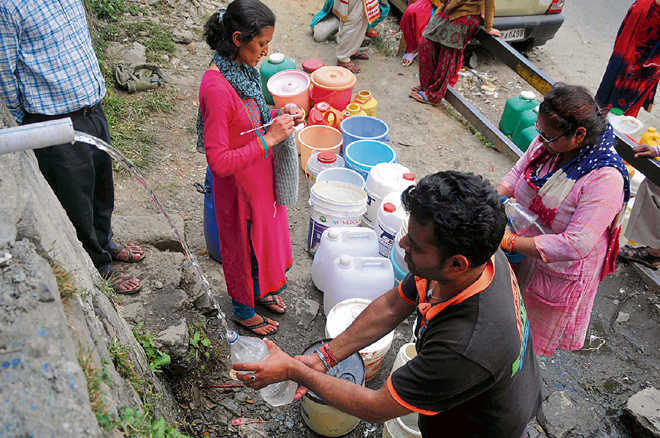
Parched Shimla, with serpentine queues of its residents crying for every drop of water earlier this summer; farmers unsustainably pumping deeper from the depleted groundwater table in Punjab; the huge plans to clean polluted rivers coming a cropper: these are just some images from the trailer of the doleful picture in store for us. Most parts of our country are in for a grave water crisis, 21 major cities as soon as 2020, warns the latest report by Niti Aayog. The stress will deepen as the demand — a function of population growth and economic development — is expected to double than the available supply in just around 10 years. Compounding the problem is the fact that 70 per cent of the precious resource is contaminated. Ranked 120 out of 122, we make the tail-end of the countries in water quality index. The escalating impacts of climate change and poor water management are only pushing us in deep water. Most cities lose between a third and a fifth of their water from pilferage or leakage through antiquated pipes, and we don’t treat and reuse wastewater enough.
The report is yet again a grim reminder to take strategic and stringent action at once, before our lands and water bodies become too unsustainably dry to reverse the trend. With 50 per cent of the population already facing high-to-extreme water scarcity and about two lakh people dying every year due to water-related problems, ringing the alarm bells alone is not sufficient. Water management — by employing technology and policy intervention — holds the key to water security.
The United Nations World Water Development Report 2018 lays emphasis on nature-based solutions to address the challenges. To naturally replenish the rivers and aquifers, a judicious use of water is essential. For that, there is need to push for public awareness regarding the importance of rainwater harvesting, treatment and reuse of waste water, an efficient irrigation system, and regulation of tubewells, as also prevention of pilferage or leakage through antiquated pipes in our cities. Water woes easily turn into disputes and social strife over water in the long run has the potential of disrupting any treaty and leading to a war. We need to stem any such event from gathering steam by conserving water.


























